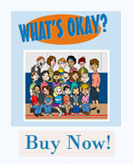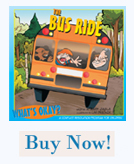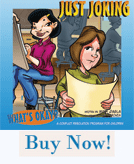|
Outline
"What's Okay?" A Conflict Resolution
Program for Children addresses the following:-
1. Good Values - Children are taught how to apply good values when
dealing with meanness, bullying, being too nice and safety. Example-
We have an obligation to respect all people, but we don't have an
obligation to respect bullying. Persons who bully are empowered when
we respect bullying.
2. Safety - Children are taught to look out for danger at all times
and to seek help when necessary.
3. Positive Role Modeling - It is exceptionally important to lead by
example. Therefore there is no name calling in the book.
A Restorative Approach - is used to reinforce good values, safety and
positive role modeling within seven easy lessons. Included in each
lesson- short story and questions for students
- overview and answers for teachers
- a reemphasis of the paradigm and the caution
When we teach children to take care of themselves their is a risk
that they will mistakenly be mean in order to take care of
themselves. When we teach children to be nice there is a risk that
they will mistakenly allow themselves to be taken advantage of in
their desire to be nice.
This program addresses both these
risks with a paradigm:
1. Take care of yourself, but not by being mean.
2. Be nice, but not too nice.
This paradigm is applied to seven open ended short stories. The
stories are open ended in order to encourage children, under the
guidance of an adult, to make their own decisions in situations of
conflict.
The program is geared toward elementary school children, ages 5 -12.
The stories and accompanying topics are as follows:
What's Okay?-the Paradigm, Introduction for Teachers, Caution, Itís
My Sidewalk Too! (Topic: Bullying), One, Two, Three Strikes, Youíre
Out... Maybe. (Topic: Sharing), The Secret Club. (Topic: Loyalty), The
Bus Ride. (Topic: Solutions), Just Joking. (Topic: Name Calling),
The Hat Trick. (Topic: Trying your best), My Fingers Were Crossed.
(Topic: Honesty), Index of Other Conflicts, Curriculum Applicability
Sheet
Each story includes a lesson overview for the teacher, questions for
the students and answers for the teacher. In addition to the
lessons, there is a paradigm, a caution, an introduction for
teachers and an index of other conflicts. A curriculum applicability
sheet can also be provided. |
News


Newly Available

|
|